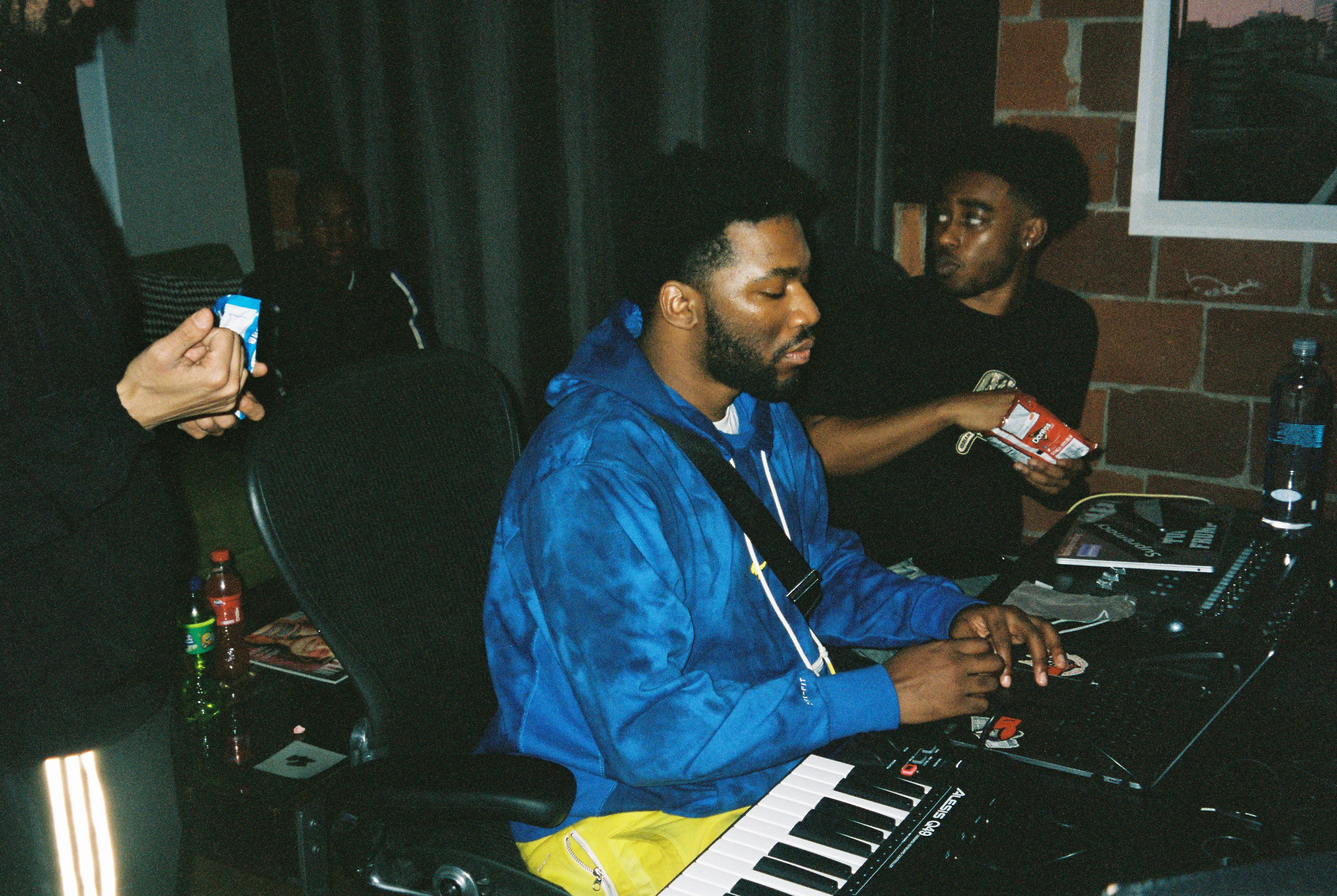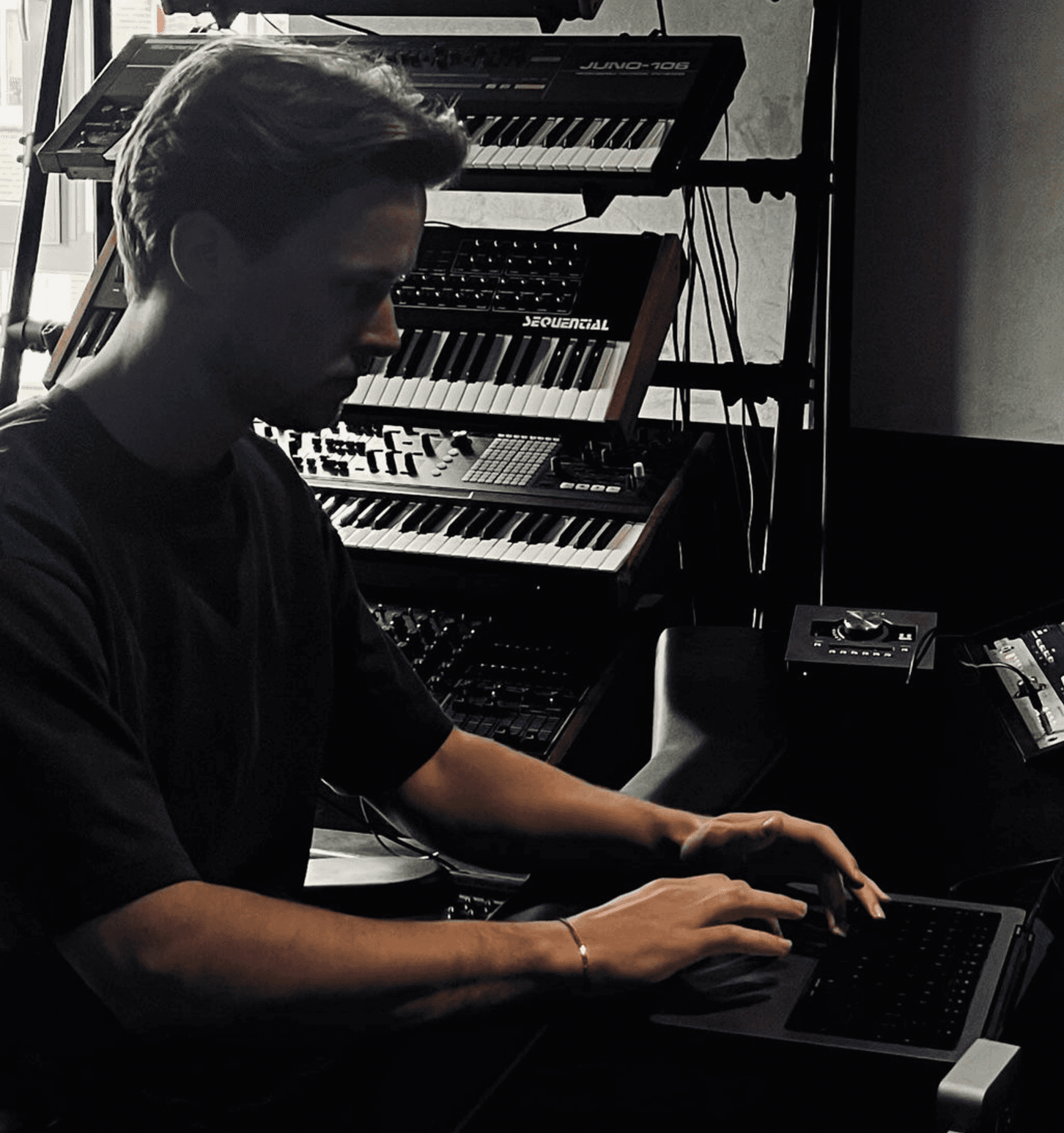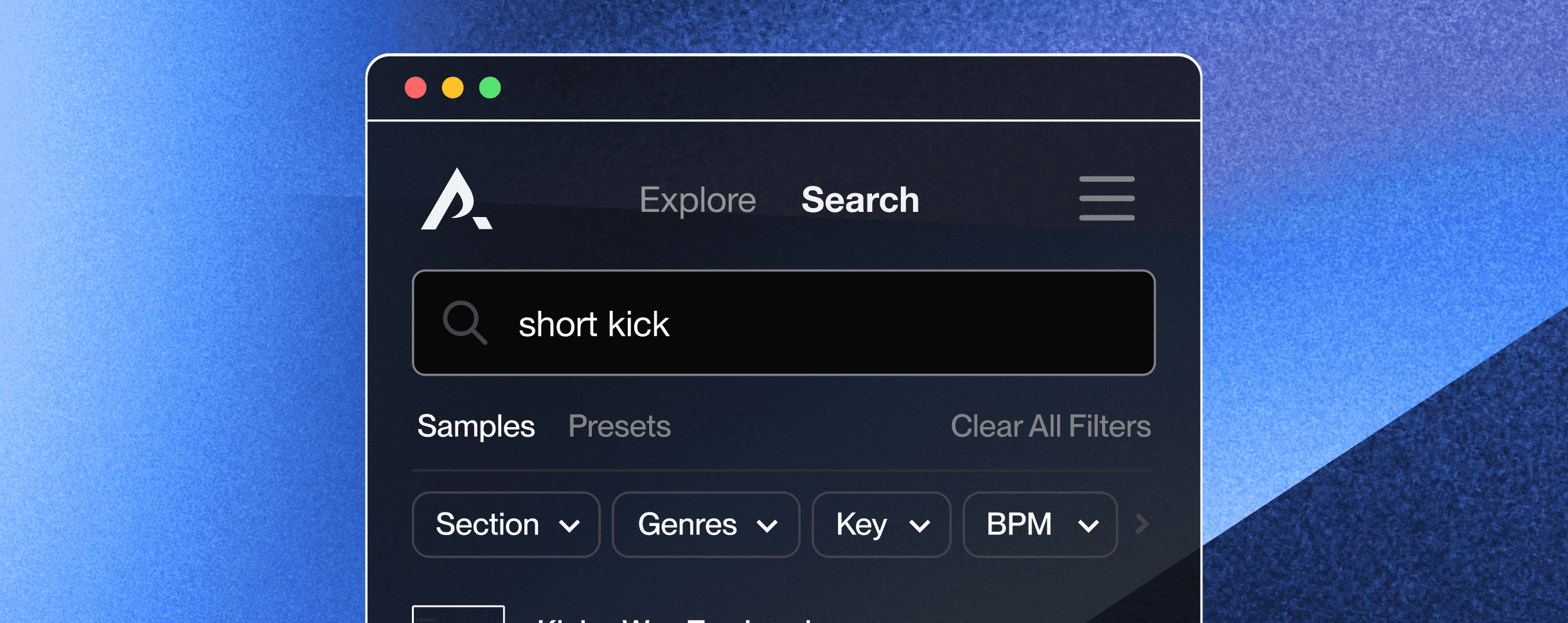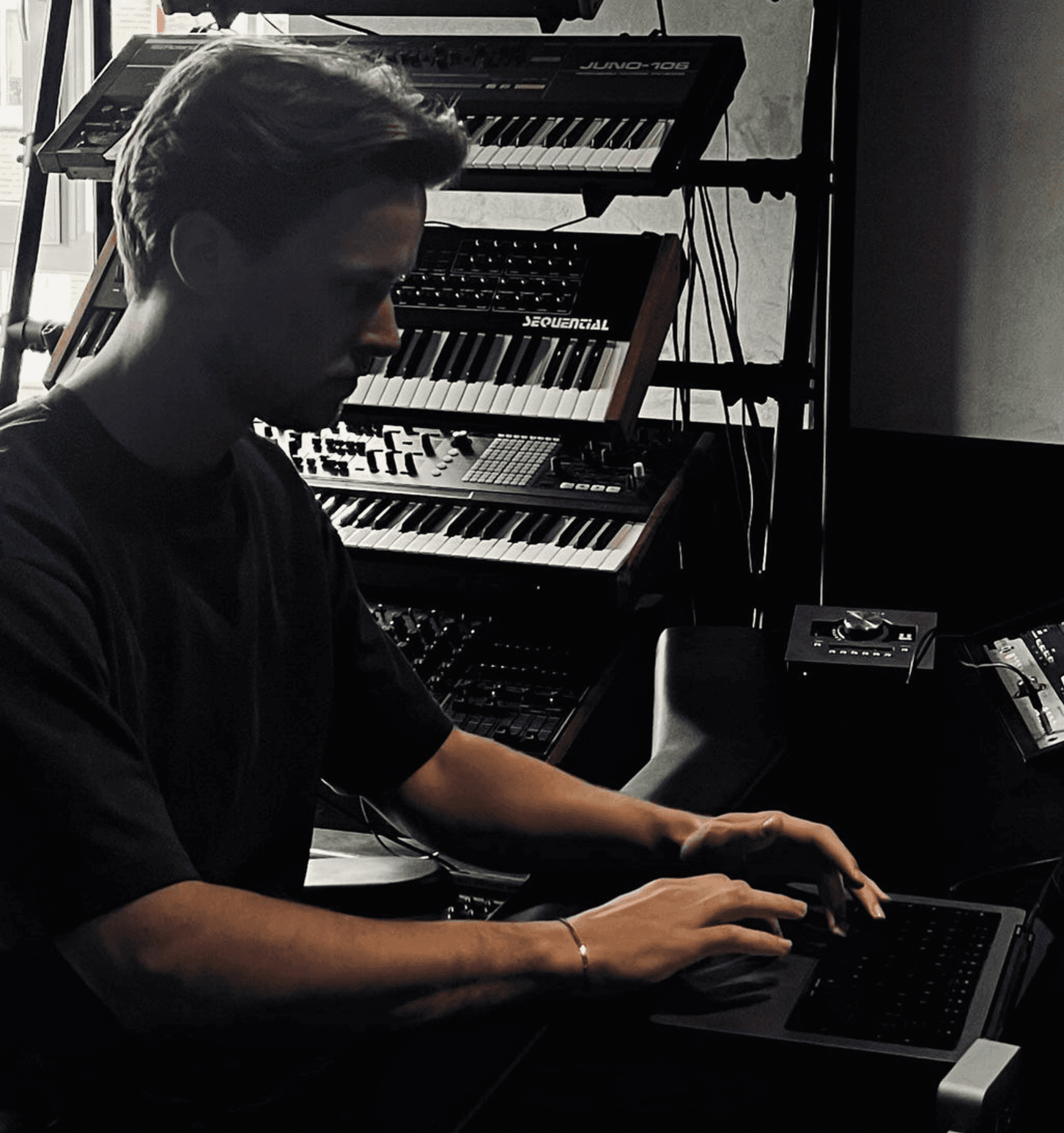
Hendrik Barendsen
Industry
10
min read
Mar 13, 2024
The landscape of beatmaking was vastly different from the digital realm we know today. Beatmakers, often referred to as "producers" or "beat smiths," operated within a world that was dominated by hardware-based instruments. These instruments hardware tools shaped the landscape of the genre.
Central to this hardware-centric era were iconic drum machines and samplers that served as the backbone of hip hop production. Among the most legendary were the Akai MPC series, including models like the MPC-2000, MPC-3000, and MPC-60. These machines revolutionized beatmaking with their intuitive interfaces, tactile pads, and the ability to sample and sequence audio with precision. The MPC, in particular, became synonymous with hip hop's rhythmic foundation, its distinctive swing shaping the groove of countless classics.
Another staple of early hip hop production was the E-mu SP-1200 sampler, revered for its gritty sound and limited sampling time, which forced producers to be resourceful and creative with their sampling techniques. Additionally, the Ensoniq ASR-10 sampler workstation offered advanced sampling capabilities and a rich palette of sounds, further expanding the possibilities for producers.
Hip Hop producer Marlow Digs shows you how it's done on the AKAI MPC X SE
These hardware instruments weren't merely tools; they were instruments of creativity and expression. Each button press, knob tweak, and sample chop was a tactile, tangible interaction with the music-making process. The limitations imposed by hardware forced producers to develop innovative techniques, pushing the boundaries of what was thought possible within the constraints of their machines.
Transition from Hardware to DAWs
Around the early 2000’s the internet provided a fertile ground for producers to connect, collaborate, and share their craft. Platforms like undergroundhiphop.com served as virtual meeting grounds, which you can compare to the modern-day Discord servers. This was the place where aspiring beatmakers exchanged beats, production techniques, and industry insights. These online communities became invaluable hubs of creativity, fostering a sense of camaraderie among producers scattered across the globe.
As technology advanced, the emergence of digital audio workstations (DAWs) revolutionized the beatmaking landscape. Software like Pro Tools, Cakewalk, FL Studio, Cubase, Logic, and Ableton offered unprecedented flexibility and power, empowering producers to craft beats with unparalleled precision. However, alongside the rise of DAWs came debates about the authenticity of digital production in hip hop.
Purists defended the traditional hardware-based approach, arguing that true hip hop producers adhered to the tactile, hands-on nature of machines like the MPC, ASR, or SP series. For these purists, the connection between producer and hardware imbued the music with a raw, organic energy that couldn't be replicated in the digital world. They viewed DAWs as tools of convenience rather than instruments of artistic expression, dismissing digital production as lacking the soul and authenticity of hardware-based methods.
These debates raged on within online forums and discussion boards, fueling impassioned exchanges among producers with differing viewpoints. Some advocated for embracing the opportunities afforded by DAWs, highlighting the creative possibilities and sonic flexibility they offered. Others remained steadfast in their allegiance to hardware, viewing digital production as a departure from the roots and traditions of hip hop.
This sentiment persisted well into the early 2000s, with factions within the hip hop community drawing firm lines in the sand regarding the legitimacy of digital production. Claims abounded that producing in a DAW didn't qualify one as a genuine producer, perpetuating an aura of exclusivity around hardware-based methods.
However, amidst these debates and divisions, a new generation of producers emerged who sought to bridge the gap between analog and digital worlds. Producers like 9th Wonder and Kanye West demonstrated that exceptional beats could indeed be crafted using software, challenging the notion that hardware was the sole arbiter of authenticity in hip hop production. Their innovative approaches showcased the transformative potential of DAWs, paving the way for a more inclusive and eclectic landscape of beatmaking.
Ultimately, these debates underscored the nature of hip hop production, reflecting the tension between tradition and innovation, analog and digital. While the tools and techniques may vary, what remains constant is the creativity, passion, and ingenuity of producers striving to push the boundaries of the genre.

Focusing on Creativity over Software: Redefining the Importance of DAWs
Aspiring producers find themselves with a wealth of information and resources, particularly concerning the software choices of their favorite artists. Platforms like YouTube, forums, and social media are awash with discussions dissecting the various digital audio workstations (DAWs) and analyzing the production techniques behind chart-topping hits. It's not uncommon for fledgling beatmakers to pore over interviews, tutorials, and studio setups in a quest to emulate the workflows of their musical idols.
However, amidst this deluge of information, a fundamental truth often gets overshadowed: the choice of software is but a small piece of the larger puzzle that is music production. While DAWs undoubtedly play a crucial role in shaping the production process, they are ultimately just tools.
What truly sets apart exceptional music isn't the brand of software used or the specific plugins employed, but rather the creativity, emotion, and skill poured into the music by the producer.
Consider, for instance, the timeless beats of J Dilla, whose legendary status in hip hop production transcends the specific hardware or software he used. Dilla's beats are revered not for the tools he employed, but for the soulful grooves, intricate rhythms, and emotive textures that permeate his music. His genius lay not in the gear he used, but in his innate ability to channel raw emotion and musical intuition into his compositions.
Similarly, producers like Flying Lotus, Pharrell Williams, and Timbaland have achieved iconic status through their innovative approaches to beatmaking, each carving out a distinct sonic identity that transcends the confines of any single DAW or piece of equipment.
In essence, the essence of beatmaking lies not in the tools at hand, but in the boundless creativity, imagination, and artistic vision of the producer. Whether one prefers FL Studio, Ableton, GarageBand, or any other DAW, what ultimately matters is the ability to harness these tools as vehicles for self-expression and musical innovation.
Aspiring producers would do well to remember that the journey of music production is not about chasing after the latest software updates or meticulously replicating the workflows of their idols. Rather, it's about embracing the process of self-discovery, honing one's craft, and cultivating a unique artistic voice that resonates authentically with both the producer and their audience. In the end, it's not the software that defines the beat, but the beatmaker themselves.







